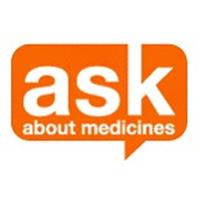
London: Over three quarters (78%) of two million people diagnosed with diabetes1 in the UK dont receive any information on their medicines when they are given a new prescription and 36% dont know what questions to ask about their treatment options.2
Partly as a result of missing information, nearly two thirds (65%) of people with diabetes are not taking their medications as prescribed, and one in three people dont understand what their diabetesmedications are for or how to take them because they feel stupid asking
questions.2
Therefore, in order to empower people with diabetes to communicate with their healthcare professional and help improve their understanding of medicines, two new resources have been made available by a partnership of Ask About Medicines, the Association of the British Pharmaceutical Industryand Diabetes UK.
A booklet, Ask About Your Diabetes Medicines,contains questions that people might want to ask healthcare professionals involved in their treatment throughout their diagnosis and treatment. It also signposts people to further sources of information, including patient-friendly Medicine Guides for Diabetes www.medicines.org.uk.
The new Medicine Guides provide easy-to-understand information about every diabetes medicine to help people use them safely and effectively, and make better informed choices about treatment, with their health professional.
The Medicine Guides have been developed as part of the Medicines Information Project (MIP), which is creating a new comprehensive, structured source of information about medicines alongside information about the condition and all the treatment options. Medicine Guides are linked to information about the condition and the range of treatment options available, provided via NHS Direct Online.
These two resources aim to help people make better informed choices about treatment, with their health professional, and to understand and use their medicines safely and effectively.
Simon O’Neill, Director of Care and Policy at Diabetes UK, commented, “It is vital that people with diabetes are empowered and encouraged to ask questions. 95% of diabetes management is self care, so failing to understand or take medicines could be fatal. Our research suggests that many people don’t know what questions to ask which is why we have developed this simple but powerful tool. Alongside the new medicine guide resource, this should mean that people with diabetes are able to ask
for and receive the right I information about their condition and treatment.”
To obtain a copy of the Ask About Your Diabetes Medicines booklet please visit www.askaboutmedicines.org For more information about Diabetes please call the Diabetes UK Careline on 0845 120 2960 or visit www.diabetes.org.uk
References:
1. Boyle DIR et al. A record linking capture-recapture technique to create a diabetes disease register for epidemiological research, 1998 2. Research Now conducted the Diabetes Information Jigsaw Survey among 505 people with diabetes, June 2006.
Notes to editors:
www.medicines.org.uk or via the NHS
Direct Online website at Ask About Medicines www.askaboutmedicines.orgis the independent campaign to increase people’s involvement in decisions about their use
of medicines.
Diabetes UK www.diabetes.org.uk is the largest organisation in the UK working for people with diabetes, funding research, campaign and helping people live with the condition. It has over 170,000 members and is working for people with diabetes, their carers, family and friends. The organisation represents the interest of people with diabetes by lobbying the government for better standards of care and the best quality of life. Diabetes UK spends over £6 million on research every year to improve the treatment of diabetes and hope that their research will ultimately lead to finding a cure for diabetes. Diabetes UKs mission is to improve the lives of people with diabetes and to work towards a future without diabetes.
The Association of the British Pharmaceutical Industry www.abpi.org.ukis the trade association for some 75 companies in the UK that produce prescription medicines. As part of their role they have encouraged Datapharm to develop medicines information for patients which is available online at www.medicines.org.uk

